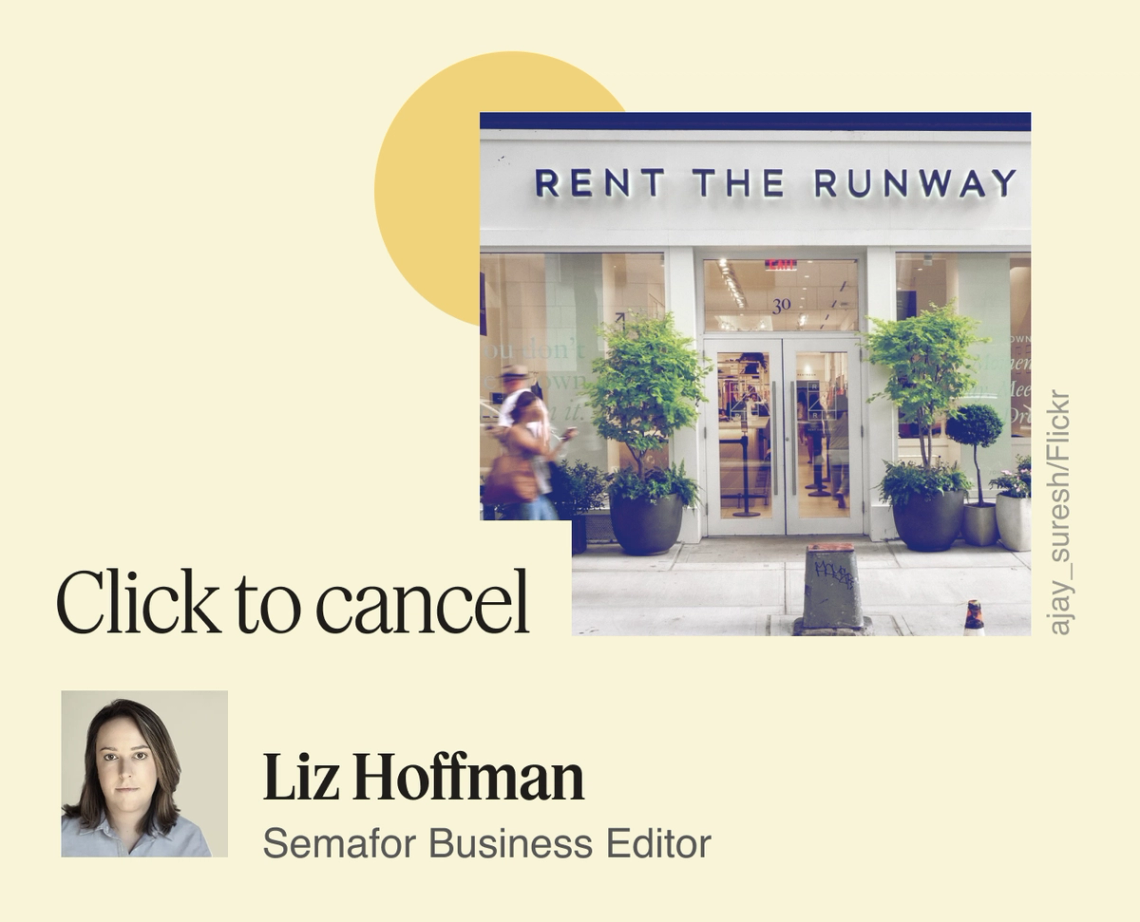 A strange thing about today’s economy is that normal commerce — you give a company money, they give you a widget — has become raw material for a financial factory. Daily coffee habits, pampering our pets, or simply our desire not to have our electricity turned off for nonpayment are now “high retention rate, sustainable business models” in credit-rating reports that companies present to lenders to get better terms. We used to just buy things. Now we’re providing recurring cash flows. Sometimes that financial innovation is helpful. Mortgage bonds put home ownership within reach for more people. Sometimes it’s toxic. Some of those people shouldn’t have owned homes, and consumers who need to spread their takeout over two paychecks perhaps should cook instead. I’ve been thinking lately about a different flavor of this. When I wanted to rent a formal dress last month, it took time to even find Rent the Runway’s single-rental option amid a sea of buttons hawking its monthly service. Thanks to Amazon’s “subscribe and save” option and my inability to appropriately gauge my paper towel usage, I’ve run out of storage space in my apartment. My freezer is full of steaks because I keep forgetting to change the default frequency setting on my ButcherBox subscription. It’s gone from thrilling to convenient to exhausting. And as recession-worried consumers tighten their belts, it could turn into a major liability for companies and their lenders, who have gotten ensorcelled by these payment streams. Regulators, too, are cracking down on companies that make it maddeningly hard to quit. “Click to subscribe” is colliding with “click to cancel,” and Wall Street isn’t ready. More on that in today’s newsletter. And as you economize in these times, a reminder that your Semafor subscription is free.
|